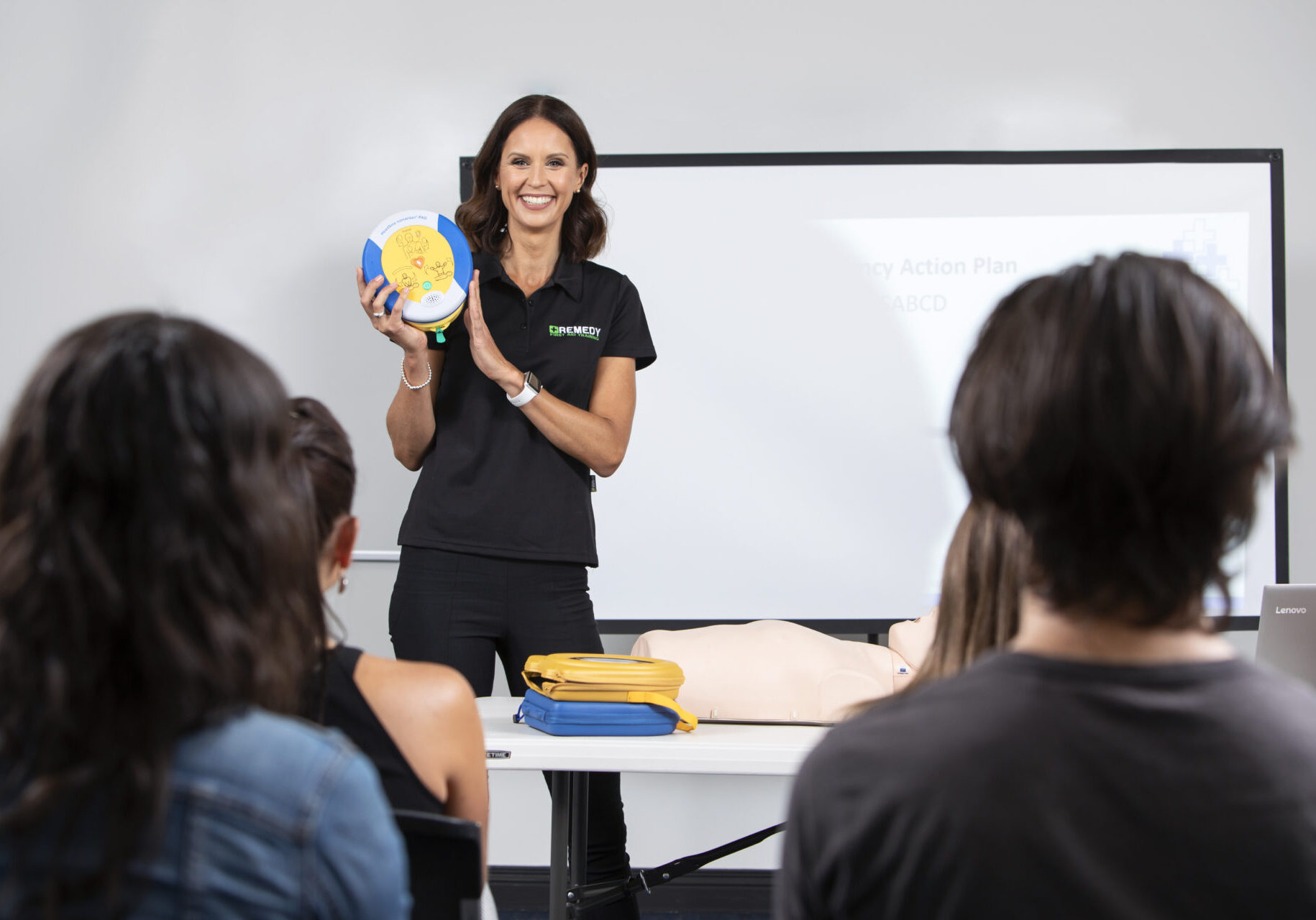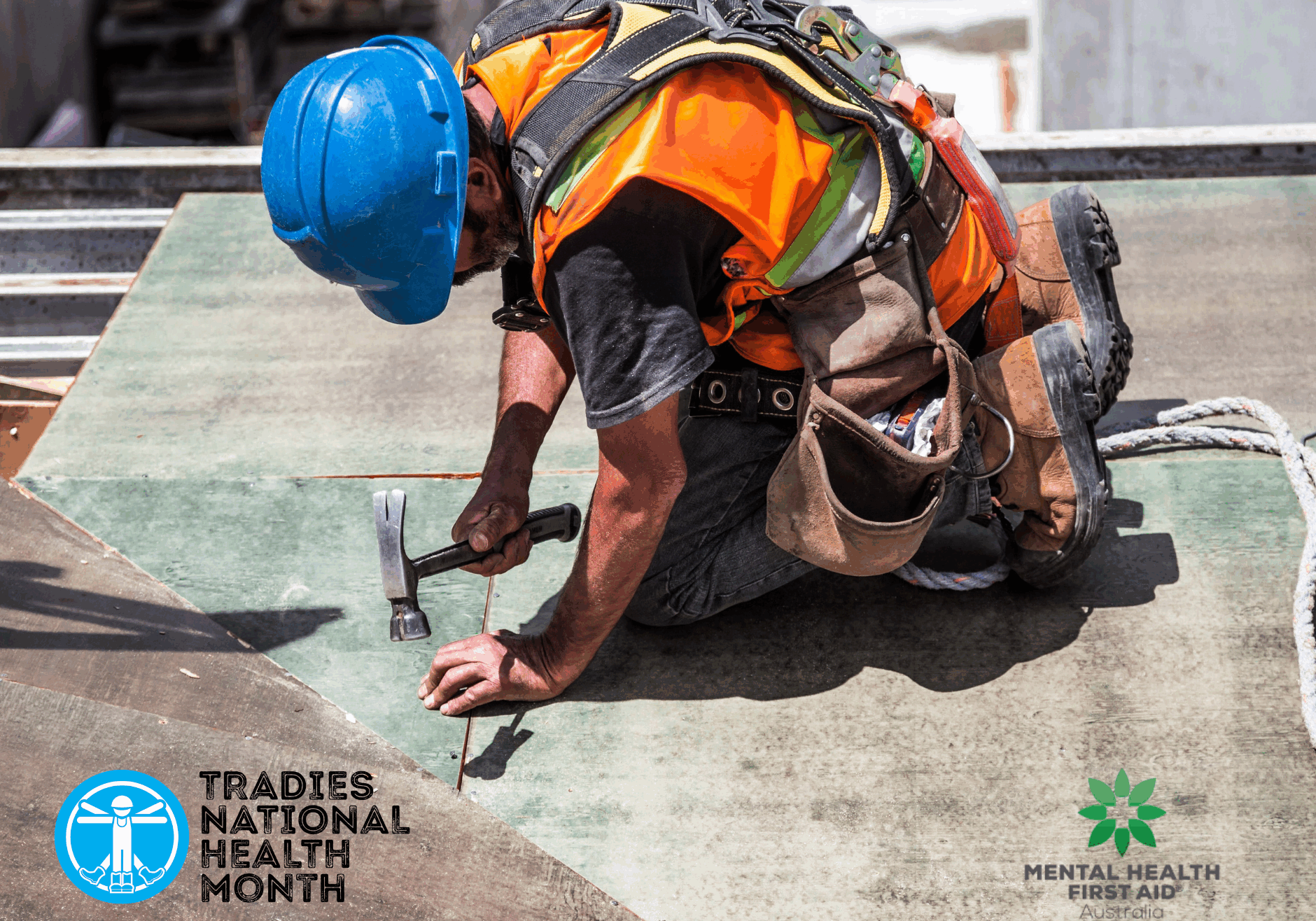Safety First, Wellbeing Always
October presents a unique opportunity for workplaces to double down on what matters most: their people. This month marks both National Safe Work Month and Mental Health Month, creating the ideal opportunity to reflect on the strong connection between physical safety and mental wellbeing. At Remedy First Aid Training, we champion the philosophy “Safety First, Wellbeing Always” because we know that a truly healthy workplace addresses both.
In this article we will explore why integrating physical and psychological safety is but essential for a thriving business and how empowering your team with skills in both traditional first aid and mental health first aid can transform your company culture. We will also provide you with actionable steps to build a workplace where every employee feels secure, supported, and valued.
Why Physical and Psychological Safety Are Two Sides of the Same Coin
For years, workplace safety focused almost exclusively on preventing physical harm. We think of hard hats, high-vis vests, and clear fire exits. While these measures are critically important, they only tell half the story. A truly safe environment is one where employees feel protected from both physical dangers and psychological distress.
Physical and psychological safety are intrinsically linked. Consider how an employee worried about their mental health may be distracted, leading to a higher risk of accidents. Conversely, an unsafe physical environment can cause chronic stress and anxiety, taking a toll on an individual’s mental state.
This integrated workplace safety approach is the core of our “Safety First, Wellbeing Always” philosophy. It’s about building a foundation of security that allows your team to not just work, but to flourish. When employees feel holistically safe, productivity increases, absenteeism drops, and team morale lifts.
The Human and Economic Cost of Workplace Injuries: Why Safety Matters
Unfortunately, workplace injuries and fatalities remain a serious concern in Australia. According to SafeWork Australia, as at 18 September 2025, 94 workers have been killed at work this year alone. In 2024, 168 workers lost their lives, and on average, over the last five years, 191 workers have been killed each year at work in Australia. These sobering statistics remind us why safety training is not just about compliance—it’s a moral and business imperative.
But the impact of workplace safety goes beyond personal tragedy; it has far-reaching economic consequences. Safe Work Australia, in collaboration with Deloitte Access Economics, commissioned research to explore the true cost of workplace injury and illness in Australia and to estimate how much value could be created within the Australian economy by eliminating work-related harm. The findings are significant: if productivity losses and costs from work-related injuries and illnesses had been avoided between 2008 and 2018, Australia’s economy would have been $28.6 billion larger each year. Safer workplaces mean not only fewer injuries and lost lives, but also more jobs and better pay—a powerful incentive for everyone.
The Power of Preparedness: Building a Physically Safe Workplace
A physically safe workplace begins with preparedness. When an accident or medical emergency occurs, the first few minutes are crucial. Having trained responders on-site can significantly improve outcomes, reduce recovery time, and, in many cases, save a life. This is where professional first aid training becomes a non-negotiable.
Equip Your Team with Life-Saving Skills
Remedy First Aid Training provides comprehensive courses that go beyond checking a compliance box. We empower people with the confidence and competence to act decisively in an emergency. To be the difference between panic and action when it matters most. Our training covers essential skills such as CPR, wound care, and managing common medical events like strokes or allergic reactions.
When employees know that their colleagues are trained to help, it fosters a powerful sense of security. It sends a clear message that the organisation genuinely cares for their wellbeing. This creates a positive ripple effect, making everyone more conscious of safety protocols and more willing to look out for one another.
Creating a Culture of Proactive Safety
Training does more than just prepare people to react. It encourages a proactive mindset. A team educated in first aid is more likely to identify and report potential hazards before they cause harm. They understand the real-world consequences of a slip, trip, or fall and become active participants in maintaining a safe environment for everyone. This shared responsibility is the trademark of a strong safety culture.
Mental Health is Workplace Health: The Rise of Psychological Safety
October’s Mental Health Month focus is a reminder that the workplace plays a significant role in an individual’s mental wellbeing. Just as we protect our teams from physical hazards, we must also protect them from psychological ones. Psychological safety is the belief that you won’t be punished or humiliated for speaking up with ideas, questions, concerns, or mistakes. It’s the foundation for high-performing, innovative, and resilient teams.
Mental Health First Aid is a key contributor to fulfilling Work Health and Safety (WHS) duties around psychosocial safety, as well as risk management, and anti-discrimination. By providing MHFA training, a workplace demonstrates they are serious about protecting employee mental health and offering vital support.
How Mental Health First Aid Changes the Conversation
Many leaders want to support their team’s mental health but don’t know where to start. They worry about saying the wrong thing or overstepping boundaries. The engaging, informative and evidence-based Mental Health First Aid Training that Remedy provides creates the right structure to overcome these fears.
Our licenced instructors teach people how to:
- Recognise the signs: Learn to spot the early indicators of common mental health problems such as depression, anxiety, and substance use problems, as well as crisis situations like suicidal thoughts, panic attacks, and psychosis.
- Provide initial help: Gain the skills to interact with a person in distress, listen non-judgmentally, and offer reassurance.
- Confidently engage: Know how to approach mental health conversations and ask the difficult questions
- Guide to professional support: Understand how to connect someone with the appropriate professional help, from HR and other internal resources, to external mental health professionals.
Equipping your team with these skills demystifies mental health. It gives them a practical framework for offering support to a colleague, much like traditional first aid provides a framework for responding to a physical injury. It normalises conversations about mental wellbeing and builds a culture of empathy and care.
Mental Health at Work: A Smart Investment for Long-Term Success
Creating a supportive atmosphere is not just the right thing to do—it’s also a smart financial decision that pays for itself.
Investing in positive workplace mental health initiatives—such as Mental Health First Aid (MHFA) training—directly reduces significant business costs related to absenteeism, presenteeism, staff turnover, and compensation claims. These initiatives translate to substantial savings for businesses. When employees feel safe, supported, and are given tools to manage mental health, they’re more likely to show up, focus, and stay loyal to their workplace. Simply put, efforts to support mental health more than pay for themselves and are an investment in an organisation’s long-term performance.
Actionable Steps to Integrate Safety and Wellbeing in the Workplace
Fostering a culture of “Safety First, Wellbeing Always” is an ongoing commitment. Here are some actionable steps you can take this October to make a real difference to the present, and the future of your workplace.
- Invest in Comprehensive Training
The most impactful first step is to empower your people with knowledge. Schedule both First Aid Training course and Mental Health First Aid Training with Remedy. By investing in both, you send a powerful signal that your organisation values every aspect of employee health.
- Lead by Example
Culture starts at the top. Leaders and managers should be the first to enrol in training. When they openly participate and discuss the importance of both physical and psychological safety, it encourages the entire team to buy in. Share your own learnings and be vulnerable—it shows strength, not weakness.
- Review and Update Your Policies
Use this month as an opportunity to review your company’s health and safety policies. Do they also address psychological safety? A particularly timely question given new legislation being introduced in December. Do the policies clearly outline the resources available for mental health support? Ensure your policies are updated, easy to understand, and accessible to all employees.
- Foster Open Communication
Create regular opportunities for open dialogue. This could be through “walk & talk” meetings, anonymous surveys, or team check-ins. Host a SafeTea chat that empowers all staff members to have input into the safety of the workplace. Ask questions like, “Would anyone like to raise any health or safety concerns relating to our workplace?”, “What would make you feel safer here?”, and “How can we better support your wellbeing?” Then, most importantly, listen to the feedback and act on it.
Build a Workplace That Thrives
October is more than just a month on the calendar. It’s a call to action. By embracing the “Safety First, Wellbeing Always” mindset, you can build a workplace that is not only safer and healthier but also more innovative, productive, and resilient.
Ready to empower your team and transform your workplace culture? Invest in the skills that protect both body and mind.
Learn more about Remedy First Aid Training’s courses today and take the first step toward a safer, healthier future for your entire team.
Discover: Mental Health First Aid Training, Workplace First Aid Training
Read more about National Safe Work Month, World Mental Health Day
Safety First, Wellbeing Always









